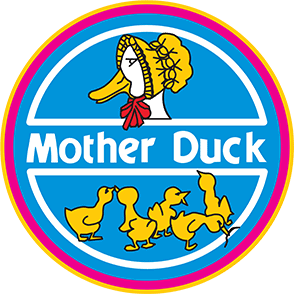
What kind of parent are you? The impact of parenting style on child development
Parenting can be a challenging journey, filled with decisions that have the potential to profoundly influence a child’s growth and development. So it is no wonder so many of us parents lament the fact that no manual exists to help us through! But here’s the good news: while there may be no manual, what we do have is a huge amount of research on how our parenting style might impact the development and behaviour of our children.
In fact, renowned psychologist Dr John Gottman was very interested in parenting styles and the effect they had on children. He discovered that the beliefs parents have about emotions affect the way they respond to the emotions of their children. And of course, the way parents respond to the emotions of their children was found to impact their emotional development and their development of essential emotional intelligence skills.
So why does this matter?
Understanding Emotion Coaching
John Gottman’s research centers around emotion coaching, a parenting and communication approach that involves acknowledging and validating a child’s emotions while guiding them in managing those emotions effectively.

Dr Gottman found that parents who supportively coached children and guided them through their emotional learning tended to display greater levels of warmth and were less critical of their children’s emotions and behaviour. And as a result, the children of these parents tended to have more positive outcomes. They were better able to develop emotional competence and high levels of emotional intelligence and therefore were more successful later in life.
Gottman’s work actually identified four distinct parenting styles in the context of emotion coaching. One of those styles tended to result in more positive outcomes for children and the other three resulted in less positive outcomes.
John Gottman’s 4 parenting styles:
1) The Disapproving Style
This style of parenting tends to be characterised by low levels of empathy and high amounts of guidance from the parent. The emotionally disapproving parent tends to be quite critical of emotions and often believes that emotions are negative or bad, and so will actively try to prevent a child from expressing them.
What might this style of parenting look like?
- Ignoring or neglecting emotions: Disapproving parents tend to downplay or ignore their child’s emotions. They may discourage emotional expression and dismiss feelings as unimportant.
- Lack of emotional validation: Children in emotionally disapproving households may not feel validated in their emotional experiences. Their emotions may be trivialised or shut down.
- Punitive responses: Disapproving parents might respond to emotional outbursts with punishment or criticism, further discouraging emotional expression.
For example: If a child is upset about losing a game, a disapproving parent might say, “Stop crying; it’s just a game. You’re overreacting.”
How might this impact development and behaviour?
- Children raised in disapproving households may learn to suppress their emotions, which can lead to emotional difficulties later in life.
- They may struggle with forming and maintaining healthy relationships due to limited emotional skills.
- Emotional neglect can lead to feelings of shame and low self-esteem

2) The Dismissing Style
This style of parenting tends to be characterised by low levels of empathy and also low levels of guidance. The emotionally dismissive parent may believe that focusing on or talking about emotions will only make them worse, so they will try to minimise emotions or avoid addressing them at all.
What might this style of parenting look like?
- Minimisation of emotions: Dismissing parents often minimise or trivialise their child’s emotions. They may tell their child to “toughen up” or say things like, “You’re fine. It’s not so bad.”
- Lack of validation: Children in emotionally dismissive households may feel invalidated, as their feelings are brushed aside.
- Lack of emotional guidance: Dismissing parents may not provide guidance on how to cope with or manage emotions effectively. They may instead, try to distract children from their big feelings or jump straight into trying to solve their child’s problems without allowing them sufficient time to express their emotions and feel heard.
For example: If a child expresses fear of a thunderstorm, a dismissing parent might say, “Don’t be silly; there’s nothing to be afraid of. Thunderstorms are just noise.”
How does this impact development and behaviour?
- Children may learn to suppress their emotions, leading to difficulties in expressing and understanding feelings – both their own, and others.
- They may struggle with self-esteem issues, as their emotions are not acknowledged or validated.
- Children raised in dismissing households may have a limited emotional vocabulary, hindering their ability to communicate effectively in relationships.

3) The Laissez-Faire Style
This style of parenting is characterised by high levels of empathy but low levels of guidance. These parents may believe that there is not much we can do about emotions – that they are simply something that happens to us. And so these parents may allow a lot of space to express feelings, but not many limits, and not a lot of guidance around how to manage emotions effectively.
What might this style of parenting look like?
- A hands-off approach: Laissez-faire parents often adopt a passive approach to their child’s emotions. They may not actively engage in conversations about feelings or provide guidance on emotional matters.
- Limited support: Children in laissez-faire households might feel left to their own devices when it comes to managing their emotions. They may receive little to no emotional support or guidance.
- Encouragement of early independence: Laissez-faire parents encourage independence but may not equip their children with the necessary emotional tools to navigate complex feelings.
For example: If a child is visibly upset about a problem at school, a laissez-faire parent might say, “You’ll figure it out. You’re a big kid now.”

How does this impact development and behaviour?
- Children may struggle with understanding and managing their emotions due to the lack of guidance.
- The absence of emotional coaching may lead to impulsive decision-making, excessive risk taking, and difficulty regulating emotions.
- These children may also encounter challenges in forming and maintaining peer relationships due to a lack of emotional skills and support.
4) The Emotion Coaching Style
And finally, emotion coaching parents tends to offer both high levels of empathy and high levels of guidance. They tend to view big emotions and behaviours as opportunities for teaching and connecting, and so they seek to understand the emotions beneath the behaviours they are seeing and support their children to effectively manage those emotions in safe ways.
What might this style of parenting look like?
- Emotional awareness: Emotion coaching parents are highly attuned to their children’s emotions. They notice and validate their child’s feelings, whether positive or negative.
- Effective communication: These parents engage in open and empathetic conversations about emotions. They encourage their children to express their feelings and help them identify and understand those emotions.
- Problem-solving: Emotion coaching parents guide their children in problem-solving and coping with emotional challenges. They teach valuable skills for managing emotions constructively.
For example: If a child comes home from school upset because they had a disagreement with a friend, an emotion coaching parent might recognise this as an opportunity to connect with their child and teach them about managing their feelings. They may sit down with the child, listen attentively, and say, “I understand that you’re feeling sad because you had an argument with your friend. It’s normal to feel this way. Let’s talk about what happened and how we can handle similar situations in the future.”

How does this impact development and behaviour?
- Children raised by emotion coaching parents tend to have higher emotional intelligence. They can recognise, understand, and manage their emotions effectively.
- They develop better interpersonal skills, which contribute to healthier relationships with peers and later in life with partners and colleagues.
- Emotionally coached children are more resilient in the face of stress and adversity. They have learned coping strategies that serve them well in adulthood.
- These children also tend to have higher self-esteem because they feel heard and valued, even in times of emotional distress.
What can I do if I’m NOT an emotion coach parent?
Well, here’s the good news. You can take the pressure off and stop worrying about getting it “right” all the time. Most of us will not use any one style of parenting all the time. While we may have one predominant style that we tend to fall back on, most of us are a mixture of all 4 styles. And that’s A-ok! John Gottman’s research also tells us that we don’t need to be an emotion coach 100% of the time. In fact, to see the benefits of emotion coaching, we only need to do it around 30% of the time.

John Gottman’s research on emotion coaching provides valuable insights into the impact of parenting styles on child development. We know that when we strive to coach our children through their emotions, we create a nurturing environment that fosters emotional intelligence, resilience, and healthy relationships. In contrast, the disapproving, laissez-faire, and dismissing styles may lead to challenges in emotional regulation, self-esteem, and interpersonal relationships. But by understanding the impact of these styles, parents can strive to cultivate emotional intelligence, empathy, and resilience in their children, ultimately setting them on a path to healthy emotional development and well-being throughout their lives.
Sarah Conway is a child and adolescent psychologist, mother of 4, and founder of Mindful Little Minds. She has over 15 years of experience working in mental health with children, teenagers, and families. Sarah’s mission is to help parents move away from punitive parenting strategies and towards mindful, intentional parenting that builds emotional intelligence in children and parents alike. As a busy mum herself, she knows firsthand how difficult mindful parenting can be, particularly when it was never modelled by our own parents. That’s why she provides parents and children with simple, practical strategies and tools that help them learn to manage emotions – together. She believes that changing the way we parent will change the world.


